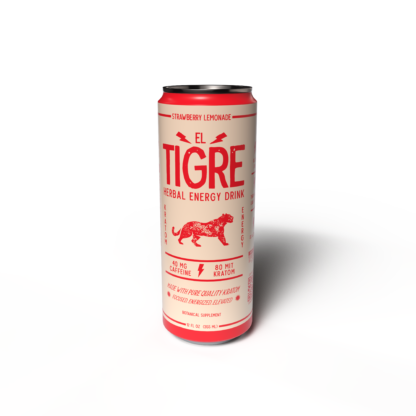Kratom’s Potential Benefits for Stress Management
In today’s fast-paced world, high-pressure jobs can take a toll on mental well-being. Many individuals seek natural ways to manage stress and maintain focus amidst demanding schedules. Kratom, an herbal supplement derived from the Mitragyna speciosa tree, has gained attention for its potential benefits in stress management.
Adaptogenic Properties of Kratom
Kratom’s potential stress-relieving effects are often attributed to its interaction with opioid receptors in the brain. Some studies suggest that kratom may modulate the body’s response to stress hormones like cortisol, potentially reducing feelings of anxiety and tension. Furthermore, kratom’s stimulating properties at lower doses might enhance cognitive function and alertness, allowing individuals to better cope with demanding tasks.
Kratom is increasingly being studied for its potential adaptogenic properties. Adaptogens are substances believed to help the body adapt to stress by regulating various physiological functions. Research suggests that kratom may have this effect by influencing neurotransmitter levels and promoting a sense of calm and balance.
Influence on Cortisol Levels
Kratom’s potential benefits for stress management may stem from its ability to influence cortisol levels. Cortisol is a key hormone released in response to stress. Elevated cortisol levels are associated with anxiety, fatigue, and impaired cognitive function. Some research indicates that kratom might help regulate cortisol production, potentially reducing the negative impacts of chronic stress on the body.
While more research is needed to fully understand kratom’s effects on cortisol and stress response, early findings suggest promising avenues for its potential use in managing stress associated with high-pressure jobs.
Impact on Cognitive Function Under Stress
Kratom’s impact on cognitive function under stress is a complex area of research. Some studies indicate that lower doses of kratom may enhance alertness and focus, potentially aiding individuals in managing demanding tasks. However, higher doses can have sedative effects, which might impair cognitive performance.
The specific effects of kratom on cognitive function likely depend on various factors, including dosage, individual physiology, and the nature of the stressful situation.
Mechanisms of Action in Energy Drinks
Energy drinks often utilize a variety of ingredients to achieve their stimulating effects.
These components can work by influencing neurotransmitters such as dopamine and adrenaline, which play key roles in alertness, focus, and mood regulation. Some energy drinks also contain caffeine, a well-known stimulant that can enhance cognitive performance and reduce fatigue.
Enhanced Absorption and Bioavailability
The combination of kratom and energy drink ingredients presents a potential avenue for enhanced stress adaptation in high-pressure jobs. Kratom’s potential to modulate cortisol levels and promote a sense of calm could complement the stimulating effects of common energy drink ingredients.
Energy drinks often incorporate caffeine, a stimulant known to enhance alertness and cognitive function. Additionally, they may contain various amino acids like taurine and L-carnitine, which are thought to contribute to improved mental clarity and energy levels. These components work synergistically to elevate neurotransmitter activity, leading to increased focus and reduced fatigue.

The enhanced bioavailability of kratom in an energy drink formulation could further amplify its effects. Energy drinks often utilize ingredients that promote absorption and distribution throughout the body, potentially increasing the concentration of active compounds from kratom in the bloodstream.
Synergistic Effects with Other Ingredients
The synergistic effects between kratom and other ingredients commonly found in energy drinks can offer a multifaceted approach to stress adaptation.
Energy drinks often contain caffeine, which stimulates the central nervous system, increasing alertness and reducing fatigue. This can help individuals cope with the demands of high-pressure jobs by enhancing cognitive function and promoting sustained focus.
Some energy drinks also include B vitamins, which play a role in energy metabolism and stress response. These vitamins may contribute to improved mood and reduced feelings of anxiety, further aiding in stress management.
Certain amino acids like L-theanine, often found in energy drinks, have shown potential for reducing stress and promoting relaxation. These compounds can work in tandem with kratom’s calming effects, creating a balanced state of mental clarity and reduced anxiety.
The combination of kratom’s adaptogenic properties and the stimulating effects of common energy drink ingredients could provide a synergistic approach to stress adaptation in high-pressure environments.
Potential Role in Reducing Fatigue
Energy drinks often contain caffeine, a stimulant known to enhance alertness and cognitive function. Caffeine works by blocking adenosine receptors in the brain, preventing the buildup of this neurotransmitter which promotes sleepiness. This results in increased wakefulness, improved focus, and reduced fatigue.
Many energy drinks also include B vitamins, such as B6 and B12, which are involved in energy metabolism. These vitamins can help convert food into usable energy, potentially reducing feelings of tiredness and supporting sustained mental performance.
Some energy drinks incorporate amino acids like taurine and L-carnitine, which may play a role in enhancing cognitive function and reducing fatigue. Taurine is an amino acid involved in various physiological processes, including nerve impulse transmission and muscle function. L-carnitine helps transport fatty acids into cells for energy production.
The combination of these ingredients can work synergistically to promote alertness, focus, and reduce fatigue, potentially aiding individuals in coping with the demands of high-pressure jobs.

Considerations for Safe Use
While kratom presents potential benefits for stress management, it’s crucial to approach its use responsibly. Understanding potential side effects, interactions with medications, and appropriate dosages is essential. Consulting with a healthcare professional before incorporating kratom into your routine is highly recommended, especially if you have pre-existing health conditions or are taking any medications.
Dosage Guidelines
Individuals considering using kratom should be aware of potential side effects, which can include nausea, constipation, and dizziness. It’s important to start with a low dose and gradually increase it as needed, paying attention to individual tolerance and response.
Kratom may interact with certain medications, including opioids, antidepressants, and blood thinners. Consulting a healthcare professional before using kratom is crucial to ensure safety and avoid potential adverse interactions.
Specific dosage guidelines for kratom can vary depending on factors such as individual weight, metabolism, and desired effects. It’s essential to follow recommendations from trusted sources or healthcare providers and avoid exceeding recommended dosages to minimize the risk of side effects.
Interactions with Medications and Supplements
Before incorporating kratom into your routine, it’s crucial to understand its potential side effects. These can include nausea, constipation, dizziness, and in some cases, more serious issues like liver damage. It’s important to start with a low dose and gradually increase it as needed, always monitoring your body’s response.
Kratom can interact with certain medications, so consulting with a healthcare professional is essential before use. This is especially important if you take opioids, antidepressants, blood thinners, or other medications that may be affected by kratom.
Dosage guidelines for kratom can vary depending on individual factors like weight, metabolism, and desired effects. Following recommendations from trusted sources or healthcare providers and avoiding exceeding recommended dosages is key to minimizing the risk of adverse reactions.
Individual Tolerance and Response Variability
The specific effects of kratom on cognitive function under stress are still being researched. While some studies suggest that lower doses might enhance alertness and focus, higher doses can lead to sedative effects that may impair cognitive performance.
It’s crucial to remember that individual responses to kratom can vary significantly. Some people may experience significant benefits at low doses, while others may find that even small amounts cause adverse effects. Factors like metabolism, body weight, and prior experience with kratom can all influence an individual’s response.

- Start with a very low dose to gauge your personal tolerance and observe any effects.
- Gradually increase the dosage only if needed, and always stop if you experience any adverse reactions.
- Be mindful of potential interactions with medications and consult a healthcare professional if you have concerns.
While kratom shows promise for stress adaptation, it’s important to prioritize safety and responsible use.
Kratom Energy Drinks vs. Traditional Caffeine-Based Beverages
The rise of high-pressure jobs has led many to seek natural alternatives for managing stress and maintaining focus. Kratom, an herbal supplement derived from the Mitragyna speciosa tree, is gaining attention for its potential benefits in this area. While traditional energy drinks rely on caffeine as their primary stimulant, kratom offers a unique approach through its interaction with opioid receptors in the brain.
Comparison of Physiological Effects
Kratom’s potential stress-relieving effects are often attributed to its interaction with opioid receptors in the brain. Some studies suggest that kratom may modulate the body’s response to stress hormones like cortisol, potentially reducing feelings of anxiety and tension. Furthermore, kratom’s stimulating properties at lower doses might enhance cognitive function and alertness, allowing individuals to better cope with demanding tasks.
Kratom is increasingly being studied for its potential adaptogenic properties. Adaptogens are substances believed to help the body adapt to stress by regulating various physiological functions. Research suggests that kratom may have this effect by influencing neurotransmitter levels and promoting a sense of calm and balance.
Kratom’s potential benefits for stress management may stem from its ability to influence cortisol levels. Cortisol is a key hormone released in response to stress. Elevated cortisol levels are associated with anxiety, fatigue, and impaired cognitive function. Some research indicates that kratom might help regulate cortisol production, potentially reducing the negative impacts of chronic stress on the body.
While more research is needed to fully understand kratom’s effects on cortisol and stress response, early findings suggest promising avenues for its potential use in managing stress associated with high-pressure jobs.
Energy drinks often utilize a variety of ingredients to achieve their stimulating effects. These components can work by influencing neurotransmitters such as dopamine and adrenaline, which play key roles in alertness, focus, and mood regulation. Some energy drinks also contain caffeine, a well-known stimulant that can enhance cognitive performance and reduce fatigue.
The combination of kratom and energy drink ingredients presents a potential avenue for enhanced stress adaptation in high-pressure jobs. Kratom’s potential to modulate cortisol levels and promote a sense of calm could complement the stimulating effects of common energy drink ingredients.
Energy drinks often contain caffeine, which stimulates the central nervous system, increasing alertness and reducing fatigue. This can help individuals cope with the demands of high-pressure jobs by enhancing cognitive function and promoting sustained focus.
Some energy drinks also include B vitamins, which play a role in energy metabolism and stress response. These vitamins may contribute to improved mood and reduced feelings of anxiety, further aiding in stress management.
Certain amino acids like L-theanine, often found in energy drinks, have shown potential for reducing stress and promoting relaxation. These compounds can work in tandem with kratom’s calming effects, creating a balanced state of mental clarity and reduced anxiety.
The combination of kratom’s adaptogenic properties and the stimulating effects of common energy drink ingredients could provide a synergistic approach to stress adaptation in high-pressure environments.
Long-Term Health Implications
Kratom and traditional caffeine-based energy drinks offer distinct approaches to boosting energy and focus, but both come with potential long-term health implications that warrant careful consideration.
While kratom shows promise as a natural stress reliever and cognitive enhancer, its long-term effects are still being researched. Potential risks include liver damage, dependence, withdrawal symptoms, and interactions with medications.
Caffeine, the mainstay of traditional energy drinks, can lead to anxiety, insomnia, headaches, and digestive issues when consumed in excess. Long-term excessive caffeine intake may also contribute to heart problems and increased blood pressure.
Both kratom and caffeine can be habit-forming, leading to dependence and withdrawal symptoms if use is abruptly stopped. It’s crucial to moderate consumption and consult with a healthcare professional before incorporating either substance into your routine, especially if you have pre-existing health conditions or are taking medications.
Choosing the best option for stress management and energy enhancement depends on individual needs, preferences, and health history.
Sustainable Energy Production
In today’s fast-paced world, high-pressure jobs can take a toll on mental well-being. Many individuals seek natural ways to manage stress and maintain focus amidst demanding schedules. Kratom, an herbal supplement derived from the Mitragyna speciosa tree, has gained attention for its potential benefits in stress management.
Kratom’s potential stress-relieving effects are often attributed to its interaction with opioid receptors in the brain. Some studies suggest that kratom may modulate the body’s response to stress hormones like cortisol, potentially reducing feelings of anxiety and tension. Furthermore, kratom’s stimulating properties at lower doses might enhance cognitive function and alertness, allowing individuals to better cope with demanding tasks.
Kratom is increasingly being studied for its potential adaptogenic properties. Adaptogens are substances believed to help the body adapt to stress by regulating various physiological functions. Research suggests that kratom may have this effect by influencing neurotransmitter levels and promoting a sense of calm and balance.
Kratom’s potential benefits for stress management may stem from its ability to influence cortisol levels. Cortisol is a key hormone released in response to stress. Elevated cortisol levels are associated with anxiety, fatigue, and impaired cognitive function. Some research indicates that kratom might help regulate cortisol production, potentially reducing the negative impacts of chronic stress on the body.
While more research is needed to fully understand kratom’s effects on cortisol and stress response, early findings suggest promising avenues for its potential use in managing stress associated with high-pressure jobs.
Energy drinks often utilize a variety of ingredients to achieve their stimulating effects. These components can work by influencing neurotransmitters such as dopamine and adrenaline, which play key roles in alertness, focus, and mood regulation. Some energy drinks also contain caffeine, a well-known stimulant that can enhance cognitive performance and reduce fatigue.
The combination of kratom and energy drink ingredients presents a potential avenue for enhanced stress adaptation in high-pressure jobs. Kratom’s potential to modulate cortisol levels and promote a sense of calm could complement the stimulating effects of common energy drink ingredients. Energy drinks often contain caffeine, which stimulates the central nervous system, increasing alertness and reducing fatigue. This can help individuals cope with the demands of high-pressure jobs by enhancing cognitive function and promoting sustained focus.
Some energy drinks also include B vitamins, which play a role in energy metabolism and stress response. These vitamins may contribute to improved mood and reduced feelings of anxiety, further aiding in stress management. Certain amino acids like L-theanine, often found in energy drinks, have shown potential for reducing stress and promoting relaxation. These compounds can work in tandem with kratom’s calming effects, creating a balanced state of mental clarity and reduced anxiety.
The combination of kratom’s adaptogenic properties and the stimulating effects of common energy drink ingredients could provide a synergistic approach to stress adaptation in high-pressure environments.
While kratom shows promise for stress adaptation, it’s important to prioritize safety and responsible use.
Shop best Kratom shots 2025
Bye Bye Belly Blog
Bumble and Ava
- Why Can’t You Drink Alcohol After Lip Filler - November 7, 2025
- What Is The Best Age To Get Under Eye Fillers? - November 5, 2025
- What Are CBD Gummy Edibles And How Do They Work - November 4, 2025
